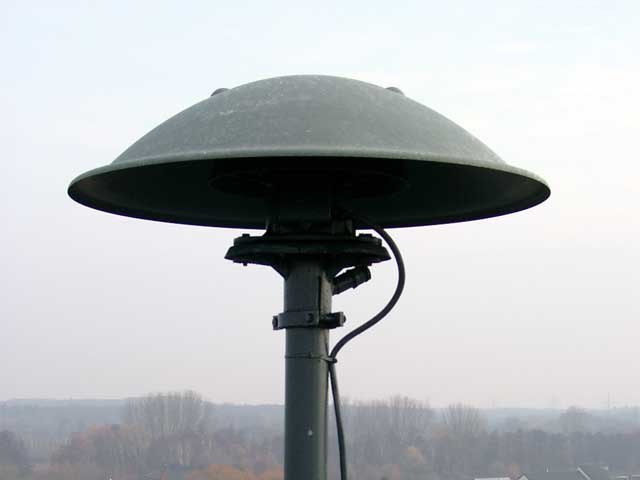Like any American of my generation, I grew up on World War II movies. America loves to glorify its role in saving Europe from the Nazis (even though the Soviet Union paid a far higher price), so TV shows and movies in the 1960s and 1970s were laden with war scenes offering the opportunity for some American hero to save the day.
This film footage had a lasting effect. Without ever having set foot in wartime Europe, the sound of air raid sirens from these movies was engrained into my brain. Just the first few seconds have always been enough to make my hair stand on end, conjuring up the sound of planes buzzing low overhead, images of burning buildings, and people scurrying up and down the street to take shelter.
When I moved to Germany, it never once occurred to me that these sirens might still exist. After arriving here in the mid-1980s, decades after the last bombers had departed and practically all traces of damage had been eradicated, I made the eerie discovery one day that the sirens were still there. Not only that, they were still fully functional.
I was standing on the platform waiting for a train when they suddenly roared into life. A slow panic rising in my stomach, I looked around. Half of me realized that this couldn’t be a real bomb raid; after all, no one else looked worried or even reacted to the sirens. Everyone else just kept reading their paper or staring off absently down the tracks in search of the train. But the other half of me conjured up visions of burning buildings and panicked pedestrians. This couldn’t be real, could it?
No, it couldn’t. Germany had retained its 80,000 sirens not for an impending war, but in case of a national emergency. The sirens were periodically tested to ensure that they still functioned. They never stopped making my hair stand on end, but I eventually got used to them.
It wasn’t until the 1990s during the euphoria following the end of the Cold War that these sirens were finally dismantled, except for those in the vicinity of chemical and nuclear power plants, near flood-endangered coasts and some cities. Now, in the world of post 9/11 with its terrorist threats, the German government is having second thoughts about having removed them. They were very effective and reached 80% of the population. As primitive as they may seem in the face of today’s world of big data, it is proving hard to find a replacement technology.
The sirens aren’t the only relic from WWII. On weekends in the summertime outside, you’re likely to hear what looks and sounds like a flying dinosaur. That’s exactly what it is, at least in airplane terms. The famous Junker JU-52 plane first took the skies in 1915 and there is a company that still offers historic flights around Munich. They fly very low and always look and sound as if they are about to drop out of the sky. They don’t, but there was a crash in August 2018 in Switzerland where a JU-52 plan flew into a mountain, killing all aboard.
There also used to be numerous American military caserns in Germany in the 1980s, many of which have since been closed. The legacy of American troops in Germany, specifically in Bavaria, was very strong. Over the decades following the war tens of thousands of troops passed through, many of them developing a fondness for their guest country.
This came in very handy once when my husband and I were on vacation in San Francisco to visit my friend Pamela. We headed to a night club and I had forgotten all about the strict U.S. requirement to show a picture ID when entering an establishment that serves alcohol.
“Oh no, they’re carding everyone,” I griped when I saw the bouncer at the front of the line checking IDs. “I don’t have my passport with me!” My Virginia driver’s license had long since expired.
“What’s carding?” my husband Carsten asked.
“They check everyone’s ID to make sure they’re over 18.”
“Well, that’s stupid.”
“Well, maybe so, but they still do it. And we don’t have our IDs with us.”
I was already getting a sinking feeling at the thought of the expensive tickets my friend had bought – tickets that we possibly might not be able to use for lack of a simple ID.
“We’ll just talk our way out of it,” my husband said.
“Fat chance! They’re super strict here!”
Or so I thought. When we reached the bouncer, my husband started explaining in German-accented English how we were from Germany and didn’t know about the ID thing.
A wide grin spread across the man’s face.
“Sprechen Sie Deutsch?” he said in American-accented German.
“JA!!” said my husband said, beaming.
The bouncer proceeded to explain how he had done military service in Wiesbaden, the location of the U.S. Army headquarters in Europe. He was delighted to have a couple of Germans (well, OK, just one) standing in front of him.
He gladly let us into the nightclub. That is the only time in my life when the ID requirement was waived. That’s what it took – a nostalgic connection to a military casern a 12-hour flight away.
